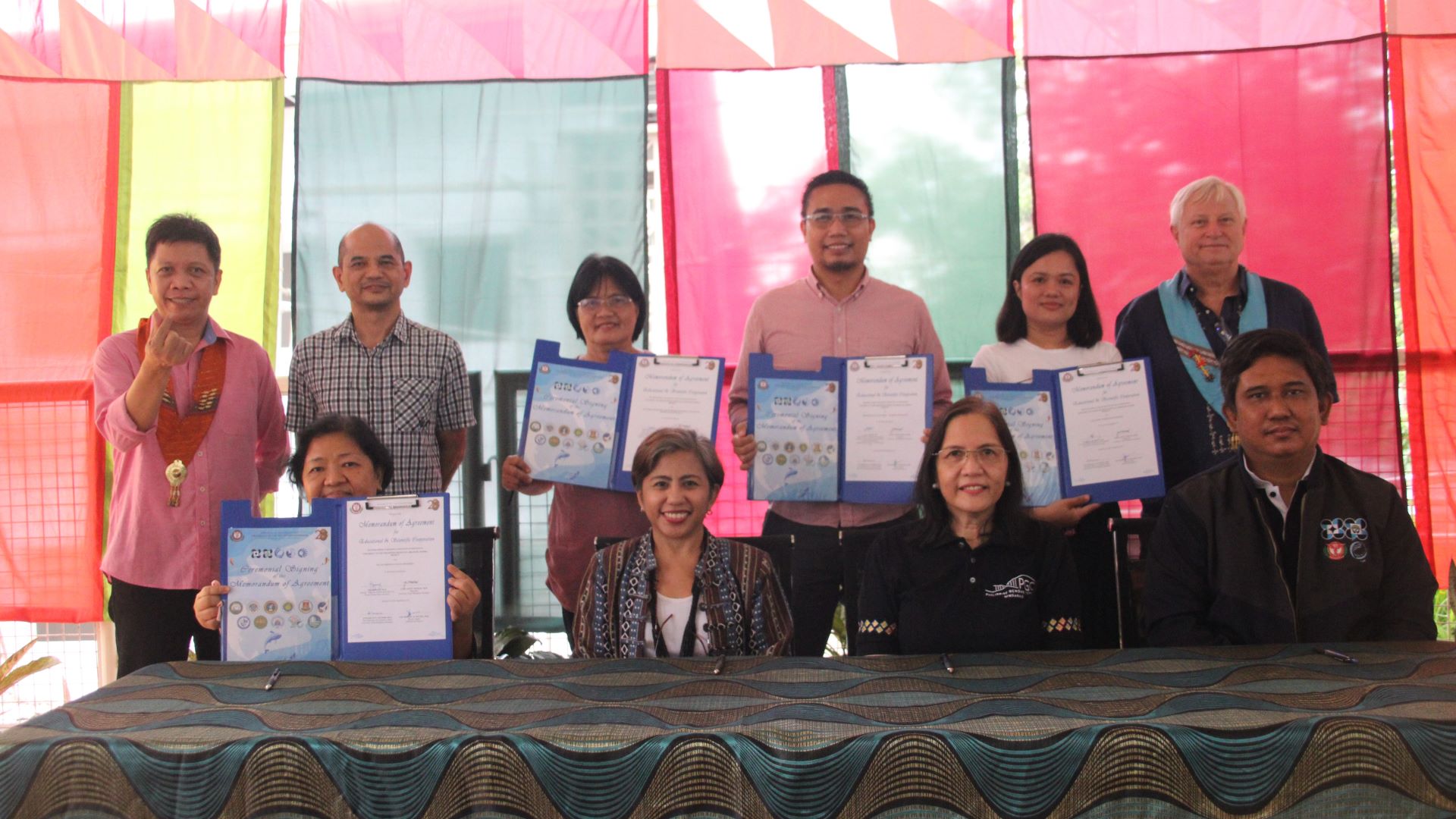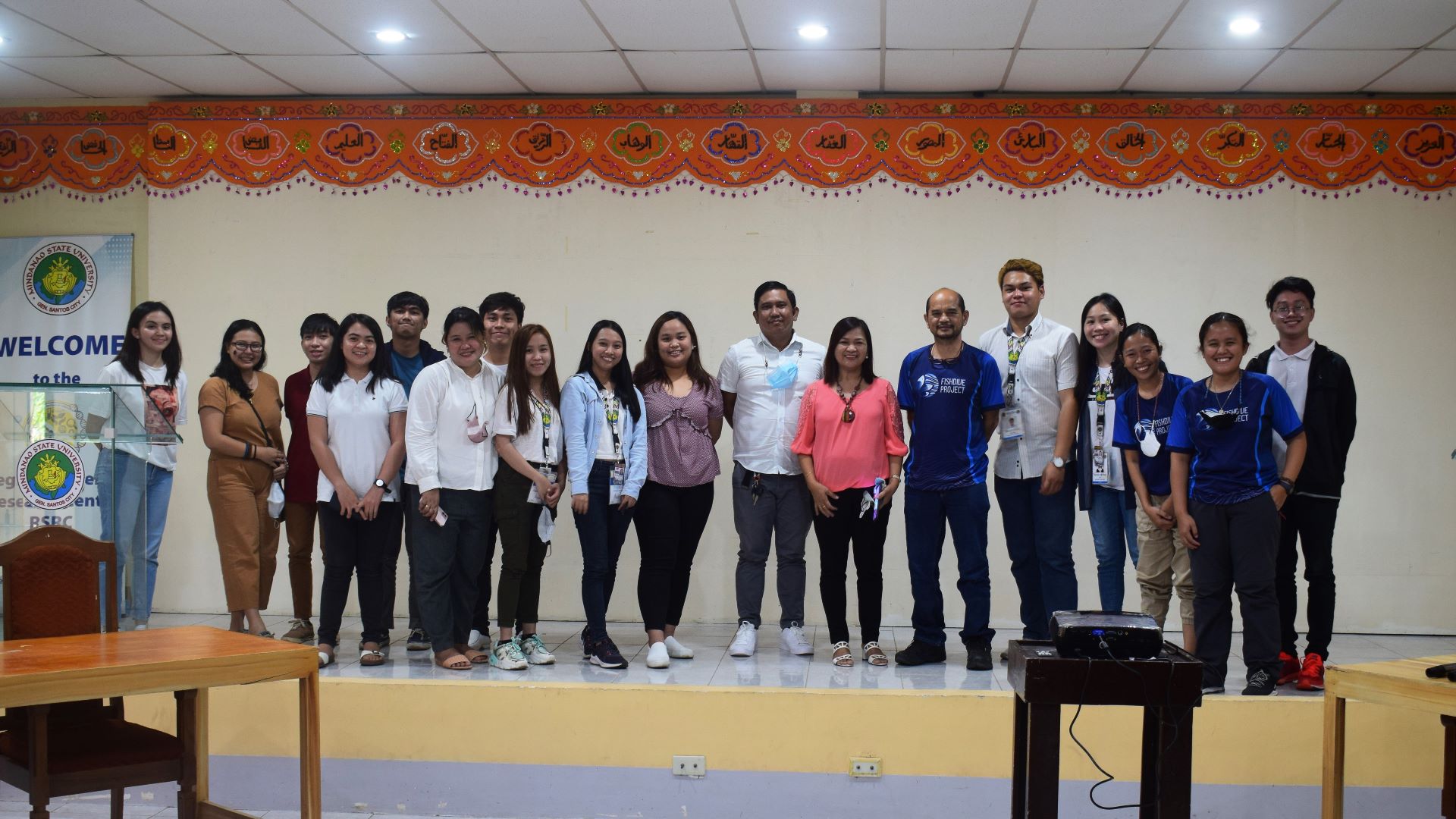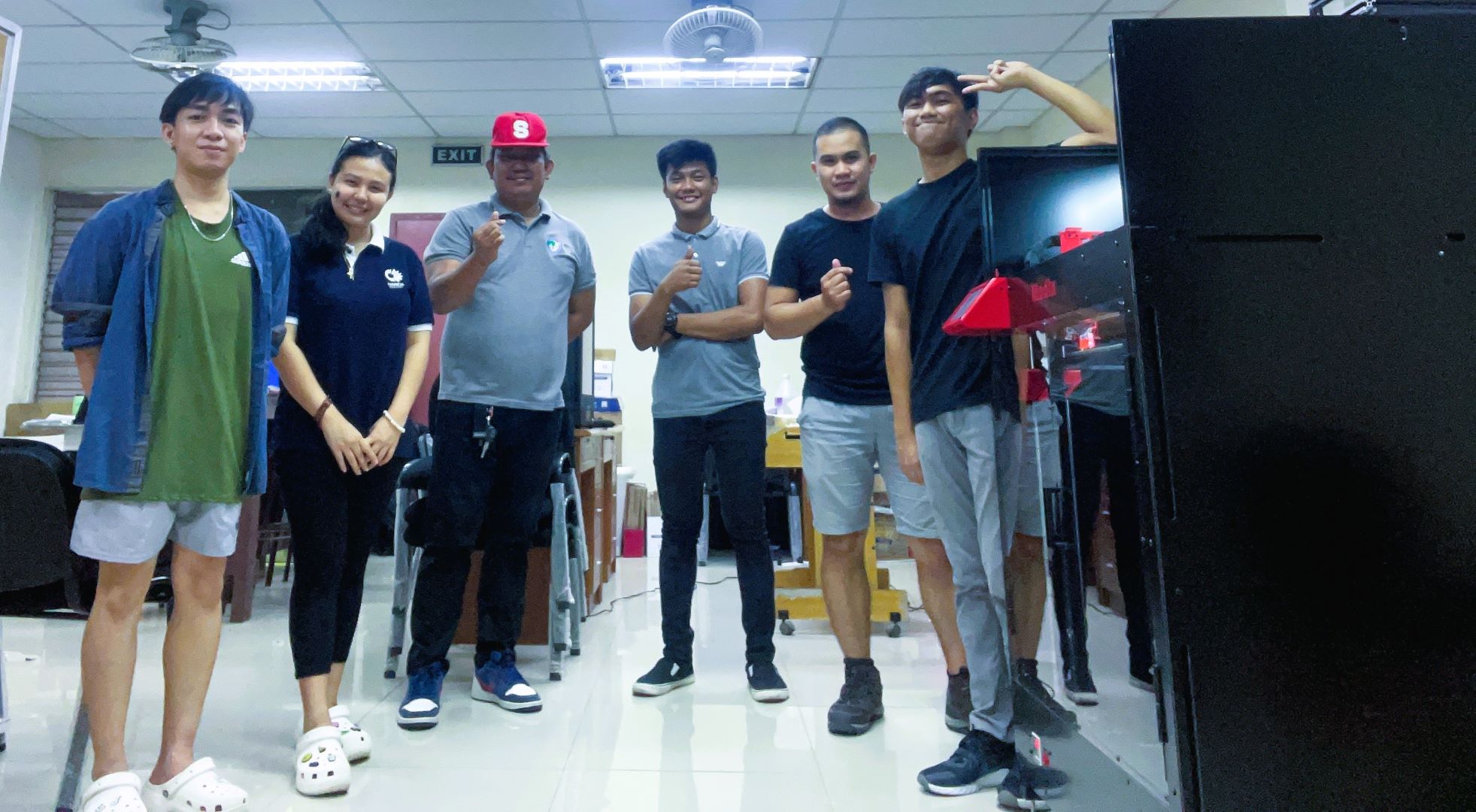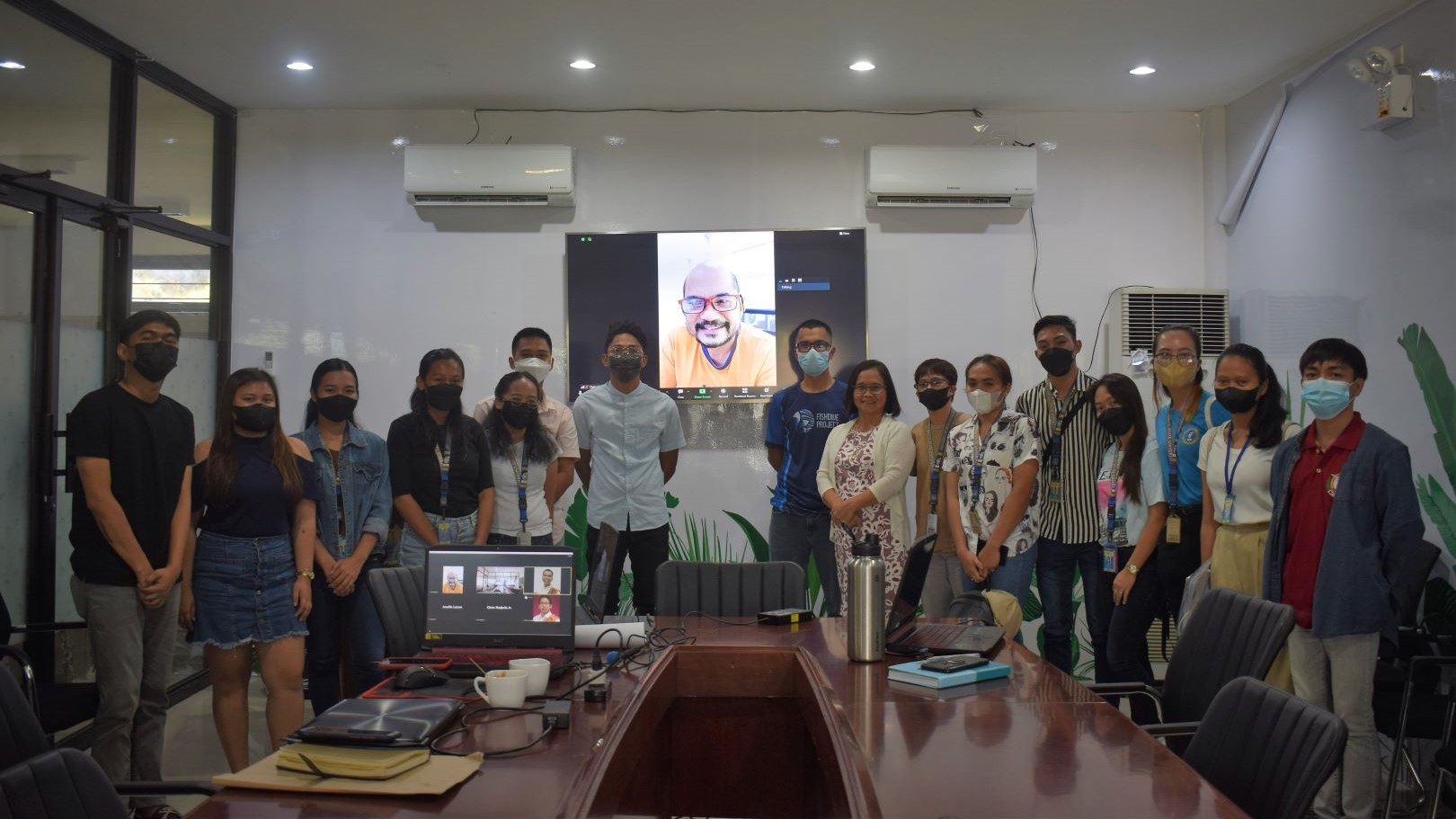
CRREST Soft-Launches Book on Reef Fish Biology and Hosts Signing of MOA for Marine Biodiversity Database Project
Written by Norjan Charls M. Cabanalan
Uploaded on Feb. 24, 2023
The UP Mindanao Office of Research, in partnership with the Coral Reef Resiliency and Ecology Studies (CRREST) Laboratory, organized a successful afternoon of discussions on reef fish diversity in the Philippines. The event was held on February 24, 2023, and attended by students, partner institutions, and government agencies in Mindanao. Led by renowned experts in the field, the discussions covered the historical records, status, and future directions of reef fish diversity in the Philippines.
As an initiative towards collaboration, the event also featured a soft launching of the book titled "Data Collection and Analyses for Reef Fish Biology." Edited by CRREST researcher Maybelle A. Fortaleza and laboratory head Dr. Cleto L. Nañola, Jr., the book aims to guide beginners in conducting independent research and streamline protocols and methods in studying reef fish biology.
The event also marked a significant milestone for the Marine Biodiversity Database (MABIDA) Project. The project held a ceremonial memorandum of agreement signing with partner higher education institutions during the event, signifying the commitment of partner institutions to support the project and collaborate in its implementation. The MABIDA Project aims to create a comprehensive database of marine biodiversity in the Philippines, providing critical information for conservation and management efforts. The event was a significant step towards the development of collaborative research endeavors and knowledge transfer in the region, and the organizers hope to continue their efforts in acquiring new information and conducting further research on reef fish diversity and marine biodiversity in the Philippines.



